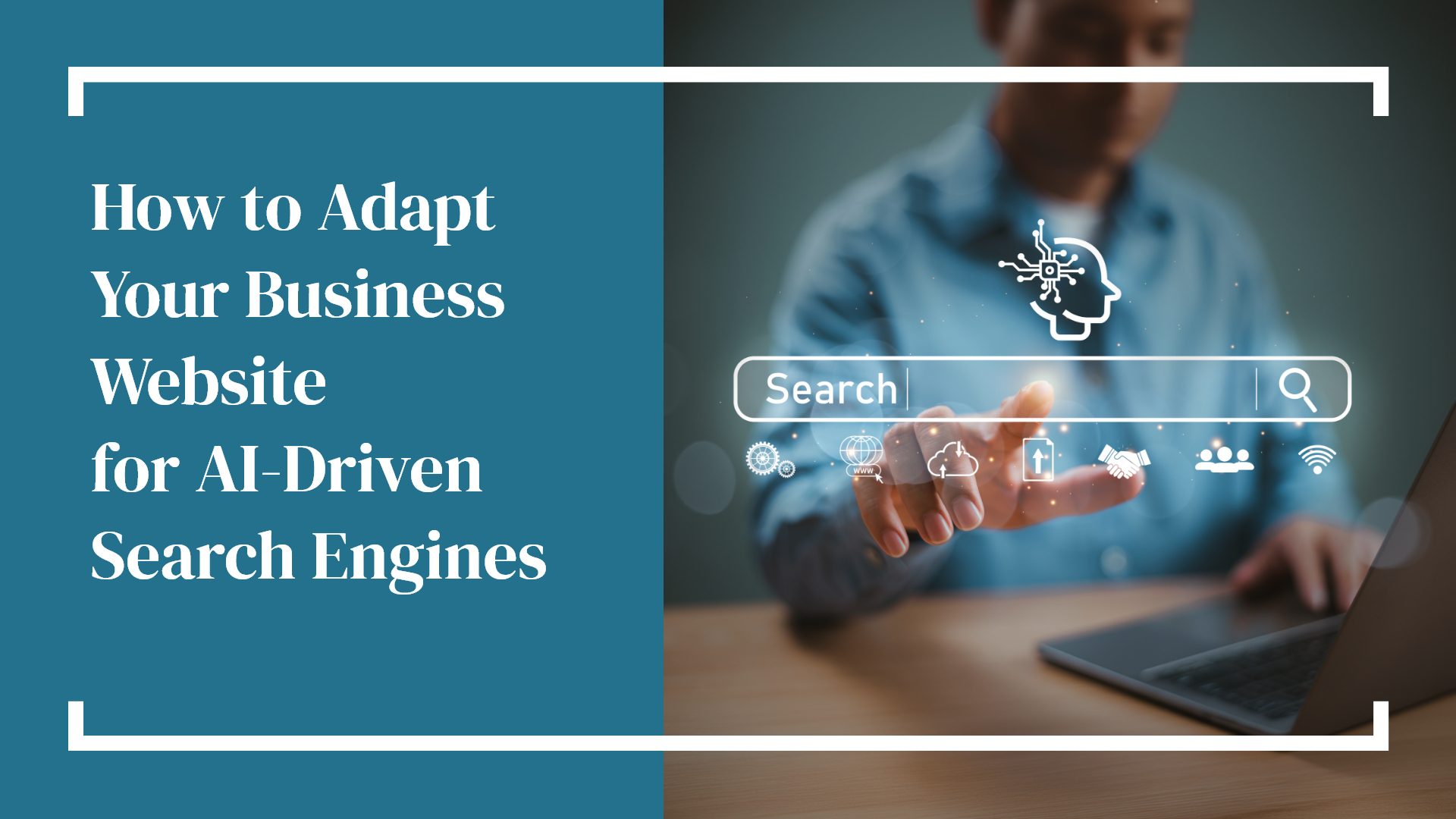It seems like artificial intelligence is everywhere these days. From the news to your social media – even email platforms offer AI assistance. The latest news centers on AI-driven search engines and how it will change how we search for information and affect your site’s SEO. So, how should we get our business websites ready for this shift? Here are seven areas your business can consider to adapt:
1. From Keywords to Understanding
In the past, search engines relied mainly on keywords to connect people with relevant information. But now, with the advancements in AI, search engines are becoming much more intuitive. They can understand the deeper meaning behind what someone is searching for, taking into account the context, intent, and even the subtle nuances of their query.
For small business owners, this shift means it’s time to focus on creating content that genuinely speaks to your audience’s needs—think about addressing their pain points and answering their questions rather than just focusing on keyword optimization.
2. Put Quality First with Comprehensive Content
AI-powered search engines are becoming adept at recognizing high-quality content. Simply put, thin, repetitive content that doesn’t add much value won’t perform as well. So, it’s important to prioritize creating in-depth, well-researched content that truly helps your audience.
This might mean taking the time to develop detailed guides, thoughtful blog posts, or comprehensive FAQs that cover the topics your customers care about. Your goal should be to become a trusted source of information—a place where your audience knows they can find what they need. This kind of valuable content is more likely to be rewarded with better visibility in search results.
3. Embrace Voice Search and Natural Language
With the rise of voice-activated devices like smart speakers and virtual assistants, voice search is becoming more common. AI-driven search engines excel at understanding these conversational queries, which are often longer and more natural-sounding than the typical typed search.
To adapt, think about how people might ask questions out loud and try to incorporate that natural language into your content. Focus on long-tail keywords and make sure your website provides clear, concise answers to specific questions. Also, consider using structured data and schema markup to help search engines understand and present your content more effectively.
4. Use AI Tools to Boost Your SEO
Just as search engines are using AI to improve, you can also use AI-powered tools to refine your SEO strategy. These tools can assist with everything from keyword research to content creation and even analyzing user behavior on your site.
By integrating AI into your SEO efforts, you’ll be better equipped to stay ahead of the curve. These tools can help you make data-driven decisions that align with the ever-changing search landscape.
5. Prioritize User Experience (UX) and Engagement
Search engines are increasingly considering how users interact with your website when determining rankings. Factors like click-through rates, time spent on a page, and bounce rates all play a role. A well-designed, user-friendly website that keeps visitors engaged will perform better in search results.
To enhance user experience, make sure your website is fast, mobile-friendly, and easy to navigate. Your content should be easy to read and interact with, and your calls to action should be clear and inviting. The better the experience for your visitors, the better your chances of ranking higher.
6. Optimize for Visual and Video Search
AI is also becoming more sophisticated in processing visual and video content. This means that image recognition, video transcription, and even analyzing sentiment in visuals are now part of what search engines consider.
To take advantage of this, make sure your visual and video content is optimized. Use descriptive filenames, alt text, and tags for images. For videos, consider adding transcripts and ensuring they are optimized for search engines. As visual search becomes more important, these efforts will help your content stand out.
7. Embrace Local Search Optimization
If your business has a physical presence, local SEO is essential. AI-driven search engines are very good at delivering personalized, location-specific results.
Make sure your business is listed on Google Business Profile and other relevant directories with accurate, up-to-date information. Encourage happy customers to leave positive reviews, as these can significantly influence your local rankings. Additionally, consider creating content that touches on local events, news, or interests to strengthen your local presence.
Hammersmith Support is Here to Help Your Business
Do you know how your site’s SEO ranks? Did you know that Hammersmith Support offers a free SEO audit? Schedule your personalized consultation, and let us help you drive more traffic and increase your online visibility today.

